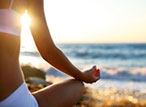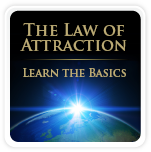-
 Love &
Love &
Relationships -
 Money &
Money &
Success -
 Mind &
Mind &
Spirit -
 Health &
Health &
Wellness -
 Inspirational
Inspirational
Videos -
 Spiritual
Spiritual
Coaching -
 Life
Life
Coaching
Aromatherapy
 What is Aromatherapy?
What is Aromatherapy?
Aromatherapy is a form of alternative medicine using essential oils in order to cure people of mental and physical symptoms. It is the use of essential oils from plants for healing. Aromatherapy is believed by some, to relieve symptoms of stress, insomnia, headaches, body and muscle pain and problems associated with digestion, among others. See examples on aromatherapy oils for healing, below.
Elements of aromatherapy date back thousands of years, and has been used for therapeutic purposes by the Indians, Chinese, Egyptians, Romans and Greeks, although it did not become popular in Western society until early in the 20th century. The procedure gained popularity after it was employed to treat soldiers in World War Two. Studies have shown that there is little or no scientific basis in aromatherapy, even though improved symptoms have been reported.
How does Aromatherapy work?
Aromatherapy uses the therapeutic benefits of essential oils, which are taken from plants using steam distillation or expression. In addition to essential oils, alternate materials include vaporizers, carrier oils, or herbal distillates. Aromatherapy portends that through inhaling essential oils, the olfactory segment of the brain sends signals to the limbic system in the brain that governs one’s emotions and conjures memories. This procedure results in chemicals being released that aid in feelings of relaxation in the patient.
There are three forms of Aromatherapy
There are generally considered to be three forms of aromatherapy: aerial diffusion, direct inhalation, and topical applications.
- In aerial diffusion, oils permeate the air and it is believed that they disinfect the harmful air that has produced the patient’s symptoms. One can add essential oils to an aromatherapy oil burner, diffuser, or vaporizer to spread the aroma through the air in the room. However, people suffering from asthma should avoid doing this.
- In direct inhalation, the patient inhales the oils straight from the source. This is a more potent method that is employed for curing breathing problems or mental symptoms.
- In topical applications, the oils are applied to the patient’s skin; this procedure is used in baths or massage. Oils can be blended into lotions, cream, or in a carrier oil, and be massaged into the skin. Aromatherapy sessions are commonly accompanied by massage, leading some to conflate the two; however, aromatherapy is much broader in practice and the two therapeutic approaches should not be considered one and the same. Essential oils can also be added to warm bath water. For example, a few drops of lavender essential oil into the tub can be used to relax and rejuvenate the body, mind and spirit. When applied to the skin, please notice that there is a possibility of side effects like allergic reactions, skin irritation and sun sensitivity.
Do the treatment yourself or go to an Aromatherapist
You can buy essential oils at health shops and pharmacies and do the treatment yourself. Make sure you keep your oils tightly-sealed containers in a dark, cool place. You can also choose to go to an aromatherapist. The title of aromatherapist isn’t protected, but look for a practitioner who have some training in physiology, anatomy, massage and essential oils. Aromatherapy is widely available and can be found at health clubs, sport centers, beauty salons, and complementary therapy centers.
In an aromatherapy session, the therapist selects an array of oils based on the symptoms felt by the patient; these oils are then mixed in with a carrier oil that supplies the lubrication. The specific oils are selected not only due to the patient’s physical symptoms but also the mental makeup of the patient. Examples of substances that are often employed include eucalyptus, citronella oil, and geranium oil. An initial visit typically lasts a couple of hours, while subsequent visits last significantly shorter.
What is Aromatherapy used for?
Aromatherapy is used for many conditions including: stress, headaches, pain relief, anxiety, insomnia, digestive problems, menstrual and menopausal problems. Unfortunately, there is is very little scientific evidence that shows its effectiveness.
Aromatherapy is useful in that it is applicable to the vast majority of people. However, caution should be taken when deciding on whether to undergo aromatherapy if a person is pregnant, suffers from epilepsy, suffers from skin conditions, or is asthmatic. Side effects may include nausea and sensitivity to sunlight.
What are the benefits of Aromatherapy?
Aromatherapy is the healing of the body, mind and spirit. You will feel more calm, relaxed, and rejuvenated after an aromatherapy session. Aromatherapy can help with sleep problems, stress, anxiety, and feelings of depression. If you have a chronic health condition, it can assist in improving the quality of life.
There are also physical benefits of aromatherapy. It can help strengthen the immune system and fight infections. The essential oils have anti bacterial properties that can assist in faster healing of skin disorders. Aromatherapy can improve your blood circulation, stimulate lymph drainage and remove toxins from your body. Muscles and joint pain can be relieved with essential oils. Also, aromatherapy may help with hormonal imbalances and metabolism conditions.
Although the benefits of aromatherapy are much debated, it is generally agreed upon that at the very least aromatherapy can remove symptoms associated with stress and anxiety. Oftentimes, aromatherapy is used in conjunction with traditional medicinal approaches although aroma therapy devotees often claim that it has the capability to cure symptoms without the aid of more canonically accepted medicinal procedures.
Below are examples of Aromatherapy oils that you can use to heal your Chakras and your body.
Chakra Healing with Aromatherapy
|
Chakra |
Useful Aromatherapytherapy Oils… |
| Root Chakra | cedar root, cloves, myrrh, rosemary, vetiver |
| Naval Chakra | cardamom, orange, sandalwood, ylang-ylang |
| Solar Plexus Chakra | cinnamon, clove, ginger, juniper, lemongrass |
| Heart Chakra | cypress, jasmine, lavender, melissa, rose |
| Throat Chakra | basil, bergamot, chamomile, peppermint, spearmint |
| Brow Chakra | angelica root, bay laurel, clary sage, elemi, patchouli |
| Crown Chakra | galbanum, gurjum, helichrysum, neroli, spikenard |
SpiritualCoach.com
Healing with Aromatherapy
|
Aromatherapy Oils |
Useful for… |
|
Black Pepper |
digestive problems, cramps, convulsions, joint pain, muscle pain, arthritis, bacterial infections. |
| Cedarwood | anxiety, stress, hair loss, acne, psoriasis, dandruff, dermatitis, bronchitis, tuberculosis, arthritis |
| Clove | Stress, headaches, earaches, tooth pain, gum pain, bad breath, digestive problems, stomach aches, nasal congestion, cuts, bug bites –It is antiseptic and aphrodisiac |
| Eucalyptus | Migraines, stomach issues, cuts, scrapes, coughs, colds –It has anti-spasmodic, anti-viral and anti-bacterial properties |
| Frankincense | Insecurity, depression, anxiety, headaches, stress, panic attacks, grief, immune system, allergies, scars, stretch marks, herpes, coughing, asthma, bronchitis |
| Lavender | digestive problems, headaches, anxiety, depression, stress, irritability, fatigue, panic attacls, hypertension, oily skin, bruises, burns, cuts, bites, stings, balancing the left and right brain waves – It has antiviral and antibacterial properties |
| Melissa | depression, nervous system, anxiety, insomnia, headaches, high blood pressure, inflammation, ulcers, bacterial infections, herpes |
| Orange | stimulates lymphatic drainage, water retention, detoxification |
| Peppermint | digestive problems, stomach issues, nausea, headaches, migraines, PMS, exhaustion, fatigue, asthma, itching – It is a great pick-me-up |
| Pine | joint pain, arthritis, cough, eczema, pimples, psoriasis, speeds up metabolism – It is antiseptic and antibacterial |
| Rose | hormone balance, PMS, menopause, sex problems, skin health – It is the ultimate woman’s oil |
| Rosemary | memory, clarity, hangover, aches, pains |
| Sandalwood | insecurity, low self-esteem, stress, depression, enhanced sleep, sensitive skin, stretch marks, endocrine health, female reproductive, urinary tract infections, bronchitis, sore throat |
| Ylang Ylang | anger, stress, tension, nervousness, balancing oily and dry skin – It is aphrodisiac |
SpiritualCoach.com


